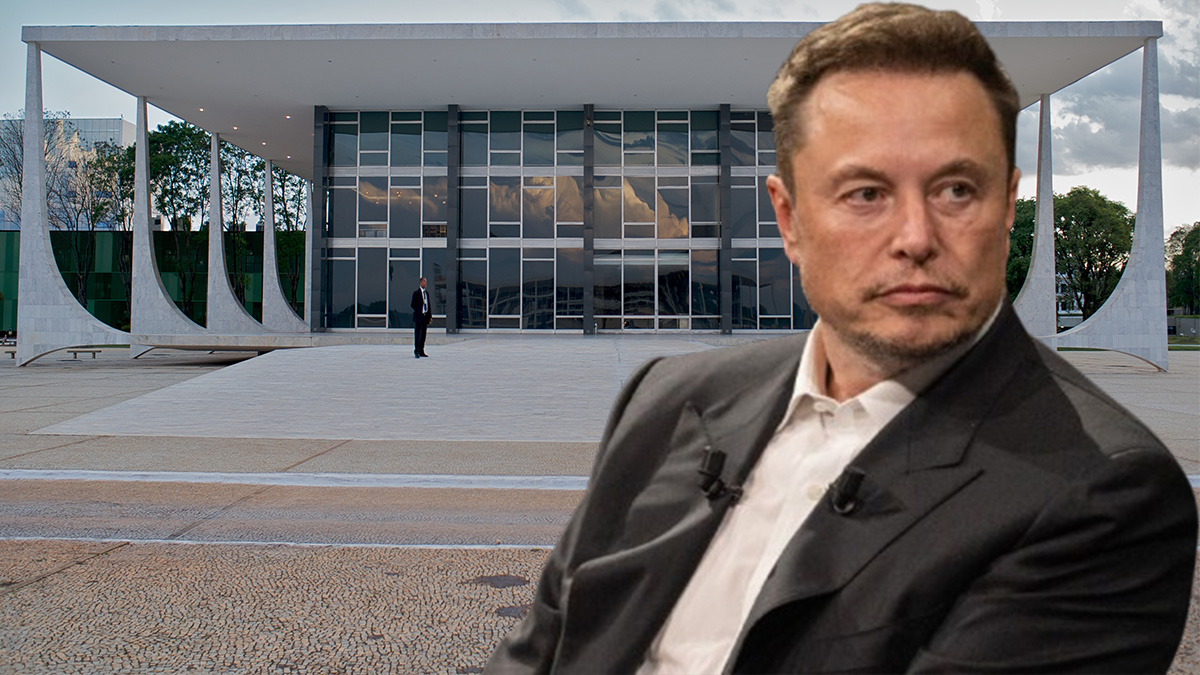Brazilian Supreme Court Unblocks Assets of Elon Musk’s Starlink, X After Penalties

In a significant turn of events, the Brazilian Supreme Court has unblocked the assets of Elon Musk’s companies, Starlink and X. This decision comes after the firms paid over $3 million in fines owed to the Brazilian government.
- Background on the Dispute
The conflict arose when authorities imposed penalties on both companies for various regulatory issues. The fines were substantial, leading to a freeze on their bank accounts. This action sparked concerns about operational disruptions and financial stability.
- The Court’s Decision
Justice Alexandre de Moraes played a crucial role in lifting the freeze. His ruling allows Starlink and X to access their funds again, enabling them to resume normal operations in Brazil. This decision is seen as a victory for both companies, which have been working to expand their services in the region.
- Implications for Starlink and X
With the unblocking of assets, Starlink can continue providing satellite internet services across Brazil. This is particularly important for remote areas where traditional internet options are limited. Meanwhile, X can focus on enhancing its platform without financial constraints.
- A Step Towards Resolution
This ruling marks a positive step towards resolving ongoing tensions between tech companies and governments worldwide. It highlights the importance of compliance with local regulations while also emphasizing the need for fair treatment in business operations.
X Remains Suspended in Brazil Despite Payment of Imposed Fines
On September 13, a significant development unfolded in Brazil’s digital landscape. The Supreme Court announced it had retrieved 7.2 million Brazilian reais (approximately $1.3 million) from X and 11 million reais ($1.9 million) from Starlink. These funds were meant to settle fines imposed on both companies.
However, despite this financial resolution, X remains suspended in the country. This situation raises questions about the implications for users and the broader tech ecosystem.
What Led to the Suspension?
The suspension stems from regulatory concerns over compliance with local laws. Authorities have been vigilant about ensuring that tech giants adhere to Brazilian regulations. This includes issues related to data privacy, content moderation, and tax obligations.
The Financial Settlement
While paying fines is a step towards compliance, it does not automatically reinstate services. The Supreme Court’s decision reflects an ongoing struggle between regulatory bodies and tech companies operating in Brazil.
The retrieval of funds indicates that authorities are serious about enforcing rules. However, it also highlights the complexities of navigating international business practices within local legal frameworks.
Implications for Users
For users of X in Brazil, this suspension means limited access to the platform’s features and services. Many rely on social media for communication, news sharing, and business promotion. The ongoing suspension could lead to frustration among users who depend on these platforms daily.
Future Prospects
What does this mean for the future? It’s uncertain whether X will resolve its issues swiftly or face prolonged challenges. Companies must adapt to local regulations while maintaining their global presence.
As discussions continue between regulators and tech firms, stakeholders will be watching closely. The outcome could set a precedent for how other countries handle similar situations with large technology companies.
The Clash Between Justice and Tech: Elon Musk vs. Brazil’s Court
In a dramatic showdown, Justice Alexandre de Moraes has taken a bold stand against X, the social media platform owned by Elon Musk. The court’s decision to freeze X’s accounts stems from Musk’s refusal to comply with orders aimed at curbing misinformation. This move not only highlights the ongoing battle between tech giants and government regulations but also raises questions about accountability in the digital age.
The Background
Justice Moraes ordered the suspension of X’s operations in Brazil after the platform failed to appoint a legal representative, violating local laws. This oversight was no small matter; it directly affected around 40 million Brazilian users who rely on the platform for communication and information.
The Consequences
The repercussions of this ruling are severe. Users attempting to access X through encrypted connections face hefty fines—up to 50,000 reais (approximately $9,000) per day. This creates a chilling effect on free speech and raises concerns about user rights in an increasingly regulated digital landscape.
Musk’s Response
Elon Musk, known for his provocative statements, did not hold back in his reaction. He labeled Justice de Moraes as “an evil dictator,” arguing that the court’s actions undermine what he claims is “the #1 source of truth in Brazil.” His comments reflect a broader tension between individual freedom and governmental authority—a theme that resonates globally.
The Bigger Picture
This incident underscores a critical issue: how do we balance freedom of expression with the need to combat misinformation? As platforms like X wield significant influence over public discourse, their responsibilities grow more complex. Governments worldwide are grappling with similar dilemmas as they seek to regulate online spaces without stifling innovation or free speech.
Conclusion
The conflict between Elon Musk and Justice Alexandre de Moraes serves as a pivotal moment in the ongoing debate over tech regulation. As Brazil navigates this turbulent landscape, other countries will undoubtedly watch closely. Will justice prevail, or will tech titans continue to operate above the law? Only time will tell.
Elon Musk and the Freedom of Speech Paradox
After paying fines, Elon Musk’s companies have regained access to their bank accounts. The Brazilian government had previously frozen these assets as part of its efforts to regulate tech giants. While this development is a relief for Musk, the ban on X’s operations in Brazil remains intact.
This situation raises an intriguing question: Is Elon Musk’s view of “freedom of speech” truly unblemished?
Musk has been vocal about his disdain for liberal governments that impose restrictions on misinformation. He often champions free speech, presenting himself as a defender against censorship. However, his actions tell a different story.
In 2023, under Musk’s leadership, X complied with a request from India’s Prime Minister Narendra Modi to block access to a BBC documentary. This film scrutinized Modi’s role in the 2002 anti-Muslim pogrom—a sensitive topic in India. By silencing this documentary, Musk’s platform contradicted its professed commitment to free expression.
This inconsistency highlights a complex reality: freedom of speech can be selective. While Musk critiques liberal policies, he seems willing to bend his principles when dealing with right-wing governments.
The tension between profit and principle is palpable. In navigating global regulations, tech leaders often face difficult choices. Compliance may mean sacrificing some values they publicly uphold.
As the situation unfolds in Brazil and beyond, one thing is clear: the debate over free speech is far from straightforward. For Musk and others in similar positions, it poses an ongoing challenge—balancing corporate interests with ethical commitments.
In conclusion, while financial constraints may have lifted for Musk’s companies, the questions surrounding freedom of speech remain pressing and unresolved. Will he continue to advocate for open dialogue across all platforms? Or will political alliances dictate his approach? Only time will tell how this narrative evolves.
Musk’s Dilemma: Freedom of Speech vs. Compliance in India
Elon Musk, a figure synonymous with innovation and bold ideas, recently faced scrutiny over his decision to restrict access to a documentary in India. His justification? Stringent local regulations required compliance, even if it meant limiting free expression.
This situation highlights a significant contradiction. Musk often champions unrestricted freedom of speech. He argues that open dialogue is essential for progress and democracy. Yet, when confronted with India’s strict censorship laws, he chose compliance over principle.
Why does this matter? It raises crucial questions about the boundaries of free speech. Can one truly advocate for openness while selectively adhering to local laws? Is it possible to balance global ideals with regional realities?
Musk’s decision reflects a broader challenge many companies face today. Operating in diverse markets often requires navigating complex legal landscapes. In some cases, this means sacrificing certain freedoms to maintain access and business viability.
Critics argue that such selective application undermines the very principles Musk claims to uphold. They worry that prioritizing compliance over free speech could set a dangerous precedent. If influential figures like Musk bend their principles for profit, what does that mean for the future of open dialogue?
In conclusion, Musk’s choice illustrates the ongoing tension between freedom of expression and regulatory compliance. As we navigate an increasingly interconnected world, these dilemmas will only grow more complex. The question remains: how do we uphold our values while respecting local laws? The answer may shape the future of communication and expression globally.






